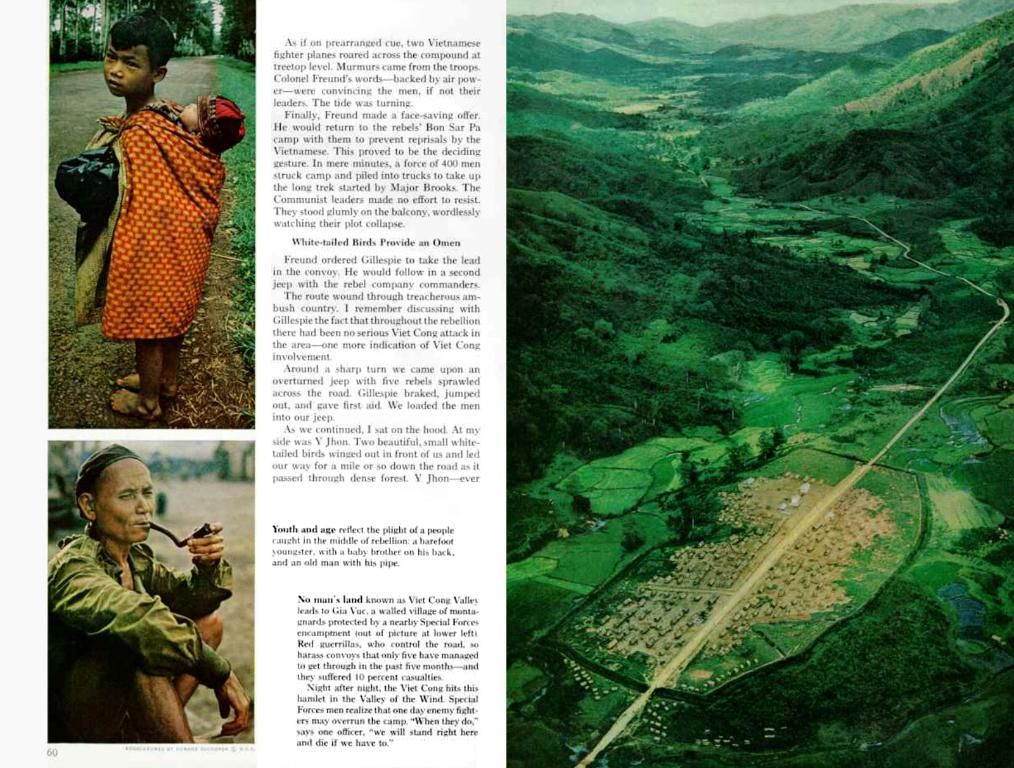Russia's Digital Iron Curtain: The Expanding Internet Censorship in Russia
Russia Plans to Deploy Personal Envoys for Diplomatic Missions
In the wake of Russia's invasion of Ukraine, the Kremlin has been relentless in exerting greater control over the internet and messaging platforms, as part of a broader campaign to stifle dissent and dominate information flow both domestically and in occupied territories.
Legislative Crackdowns
Censorious Legislation
On March 4, 2022, President Putin signed a draconian law, punishing with up to 15 years in prison anyone publishing "false information" about the Russian military. This effectively criminalized independent war reporting, limiting it solely to state-sanctioned narratives [3].
Stranglehold on Media
Roskomnadzor, the state media watchdog, has since issued gag orders to Russian media, threatening fines and blocks for non-compliance. Independent outlets such as TV Rain, Echo of Moscow, and Novaya Gazeta were shuttered or forced to relocate abroad, leaving a void in independent reporting [1][3].
Digital Suppression Tactics
Messenger and Social Media Stranglehold
Telegram and WhatsApp have been targeted by the government, with blocks, slowdowns, and threats of complete bans aimed at impeding the dissemination of unauthorized information. Despite Telegram's survival under intense scrutiny, other platforms like YouTube have seen significant cuts in traffic due to blocking efforts [2][4].
YouTube's Fall from Grace in Russia
By 2024, the Russian government began blocking YouTube, with traffic from Russia plummeting to just 20% of its previous levels. Although some tech companies have developed workarounds to bypass the blocks, there has been limited effort to restore unfettered access [2][4].
Snooping and Surveillance
Russian authorities have adopted more robust monitoring of communications, particularly in occupied territories. Mobile phone connections are restricted, and residents are warned of disconnection for lacking a Russian passport. Text messages and calls are monitored, compromising the confidentiality of mobile communication [5].
The Ukrainian Information Battlefield
Pro-Russian Media Apps
Cities under Russian occupation, such as Kherson, have seen the launch of local media applications like the "Tavria" app, designed to propagate pro-Russian narratives and create information monopolies. Residents are strongly encouraged to use these apps as their primary sources of news and content [5].
Digitizing the Iron Curtain
In occupied territories, Russian authorities are working to consolidate control over digital infrastructure, ensuring that only sanctioned messages and information are accessible [5].
Conclusion
Since 2022, the Russian government has embarked on a mission to tighten internet censorship through legislative crackdowns, internet and messenger restrictions, aggressive monitoring of communications, and bespoke propaganda applications in occupied territories. This digital iron curtain continues to be reinforced, with the overall goal of maintaining a stranglehold on information flow and crushing any vestiges of independent reporting [1][3][5].
- In the realm of finance, international Sanctions against Russia have been implemented due to its expansion of internet censorship, aiming to curb the flow of capital to entities that support the Kremlin's oppressive policies.
- The technologies utilized by Russia in its digital censorship campaign, such as monitoring systems and propaganda applications, are a cause for concern within the general-news sector, as they pose threats to press freedom and democratic ideals in technology and politics.







